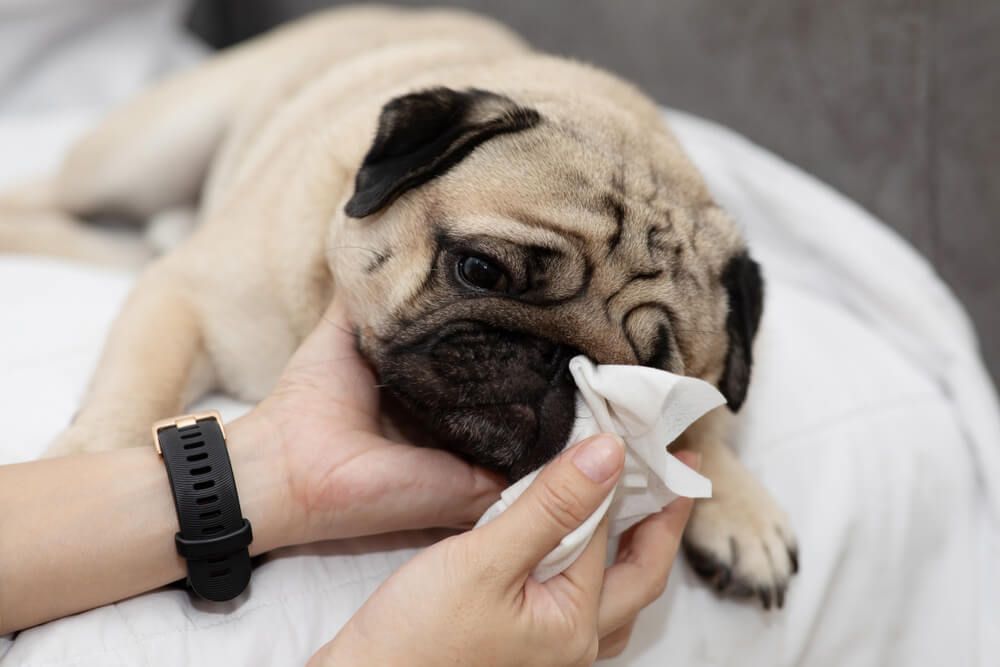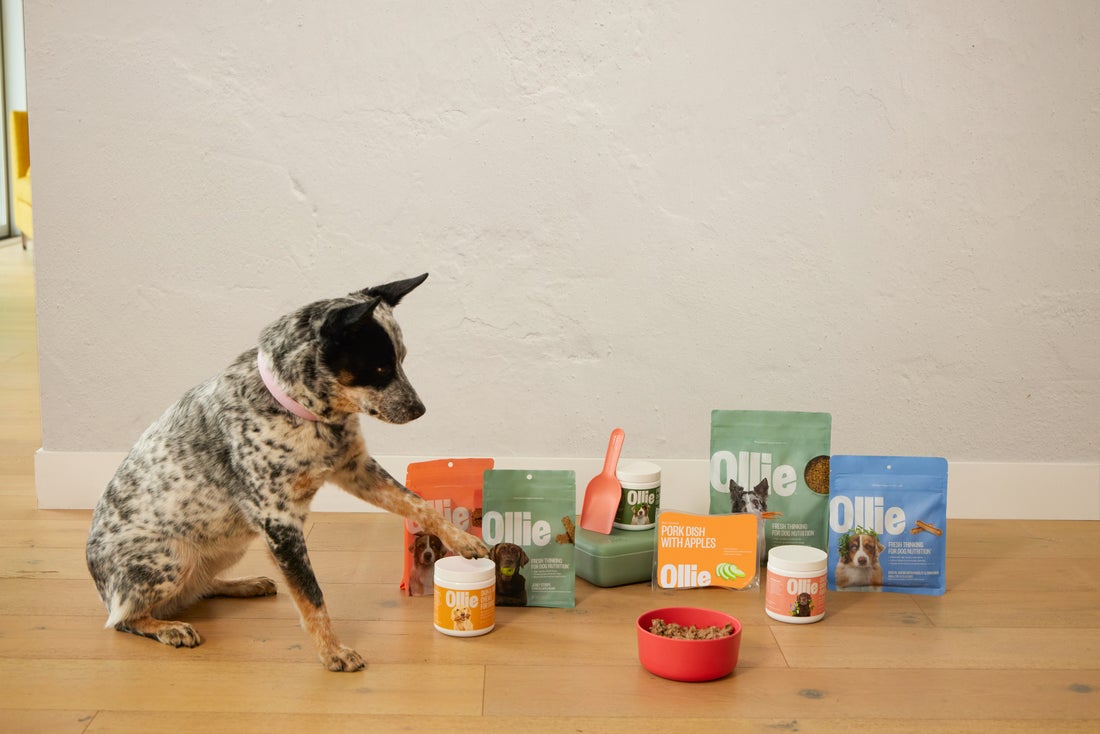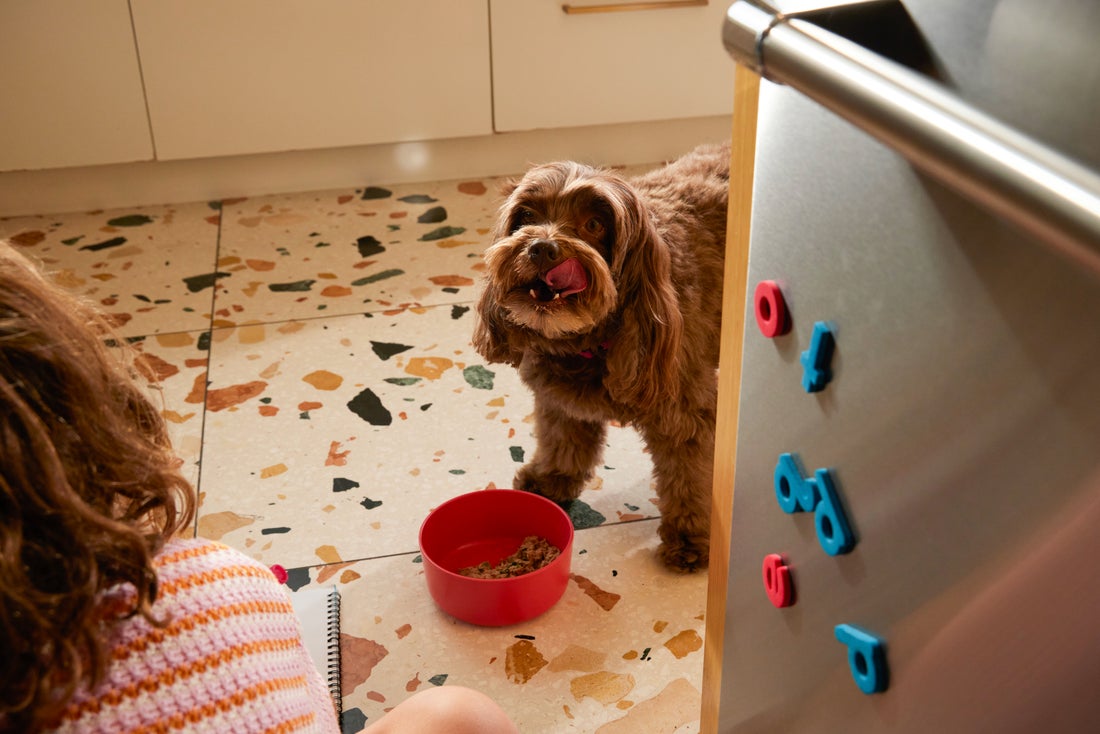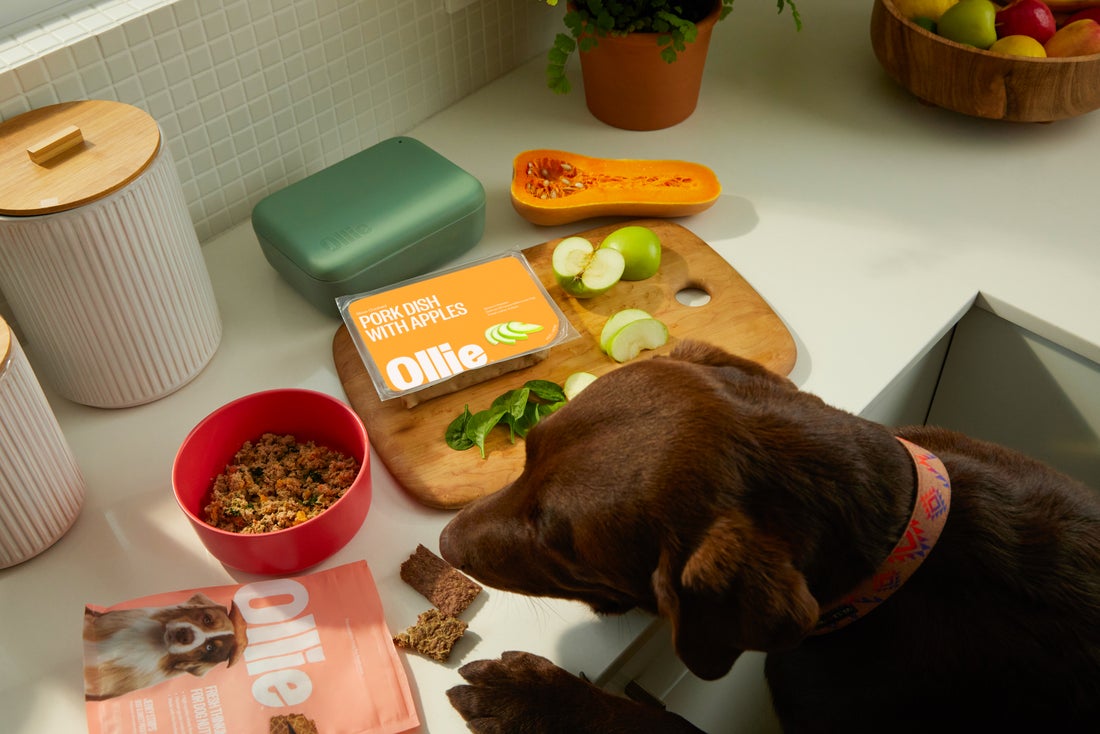Hey Ollie blog readers! We’re offering you an exclusive 60% OFF your starter box! Try now!
For most of us, the goal is to get through the winter season without catching a cold or the flu. But what about your dog? As a pet parent, you may have wondered if your dog can also get the common cold, and if they do, how do help them get better fast?
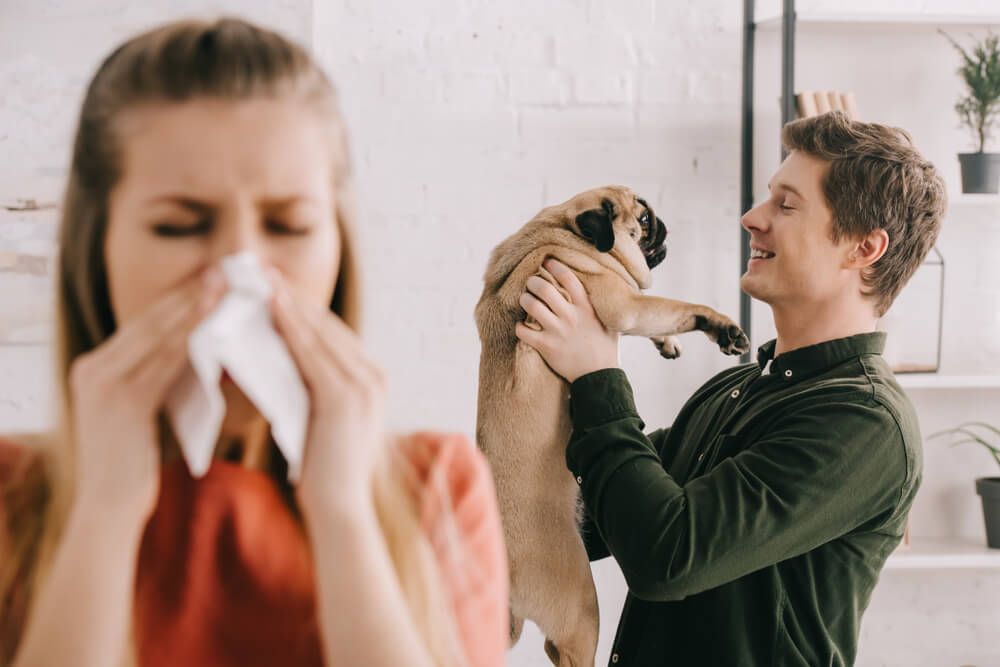
Can my dog catch a cold?
In a word, yes they can but it’s a little more complicated than you think. There are over 50 viruses that can cause cold symptoms in dogs. These symptoms are very similar to what you would experience if you caught a cold. They include sneezing, coughing, runny or stuffy nose, and watery eyes.
While most of the time, these symptoms are nothing to really worry about, they could be symptoms of something more serious including kennel cough, canine influenza, bronchitis, or canine distemper.
If your pup has these symptoms, is refusing to eat, or is showing any behavioral changes your best bet is to call your vet right away and have them checked out. The vet will be able to help you rule out more serious conditions — or provide treatment if needed.
How do I know if it is a cold or Kennel Cough?
If you hear the signature dry, honking cough it is pretty safe to assume your pup doesn’t have a cold but has kennel cough instead. The AVMA says: “Kennel cough can be caused by a combination of viruses and bacteria. It is very contagious and your dog can become infected if it comes into contact with an infected dog. Dogs with kennel cough may not seem ill in the early stages of the disease but they can still infect other dogs.”
Kennel cough is generally contracted by visiting places where lots of dogs congregate like kennels. Other common places to pick up kennel cough include doggy daycares, dog parks, and groomers. Before allowing your pup to visit any of these facilities do your homework and make sure they follow a regular cleaning protocol and have a vaccination policy. If you hear of an outbreak at your dog park or daycare, it’s best to keep your pup home for a few days so they don’t get sick too.
Are there other issues that cause similar symptoms I should be aware of?
Yes, and this is one of the reasons we always recommend touching base with your vet. It’s better to be safe than sorry. If your pup does end up needing medication, surgery, or another type of treatment getting it before symptoms become severe is always your best bet. You might be able to help your pet avoid unnecessary suffering and help yourself avoid more significant vet bills.
Coughing can be caused by internal parasites like worms. That is why if your pup is coughing a lot it is especially important to see the vet.
Things like allergies can also cause runny eyes and noses. Treating allergies can be a long process and involve changing cleaning supplies, laundry detergents, and even food.
Coldlike symptoms can also be caused by fungal infections. If left untreated this can cause damage to your pet’s lungs or heart. You’re probably pretty clear by now — if these symptoms don’t resolve in a few days, getting in to see the vet is really, really important to prevent long term issues!
Are there ways to prevent my dog from getting a cold?
One of the best things you can do is ensure your pup is appropriately vaccinated. Talk to your vet honestly about your pup’s activities. If they attend doggie daycare or boarding facilities frequently your vet might recommend that your pup get vaccinated for kennel cough once or twice a year (every 6 months). You also want to stay up to date on the distemper vaccine.
Another way to prevent sharing of germs is to keep food and water bowls clean. Avoid shared water bowls when possible. If you’re on the go with your pup, consider investing in a travel bowl so you don’t have to let them drink out of a communal dish.
Finally, the best defense for cold and other viruses is a strong immune system. Offering your pup healthy food and keeping them at a healthy weight will help them build up a healthy immune system and fight off any viruses. At Ollie, we work with veterinary nutritionists to formulate delicious recipes to help keep your pup in good health. Try one of our four delicious flavors formulate with your pup’s good health (and good taste) in mind!
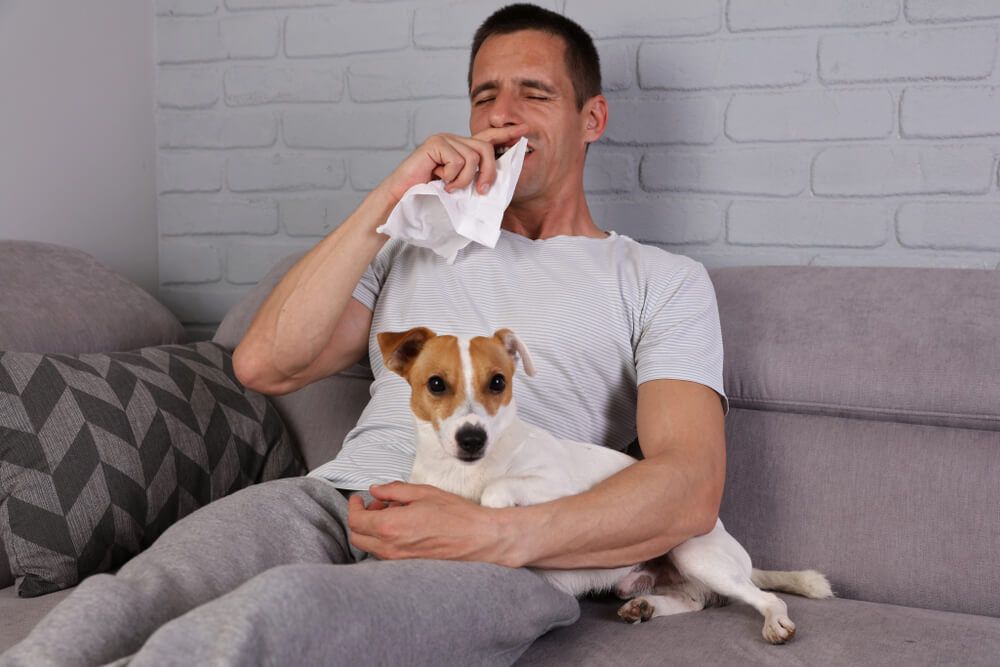
Can I give my dog a cold?
The chances of your pup picking up your cold are pretty slim. So don’t worry so much about sharing your germs with your pup. In fact, if you do get sick, some cuddle time on the couch with your best friend might have you feeling better in no time. Just remember to keep up the fluids like bone broth (which if you make it without garlic and onions you can share with your pup) and warm tea.
The Ollie blog is devoted to helping pet parents lead healthier lives with their pups. If you want to learn more about our fresh, human-grade food, check out MyOllie.com.
Tagged As:

The nutrition your dog needs,
the food they want.

Enjoying our articles? Subscribe our Newsletters and get new articles directly to your inbox
You might also like
18 July 2025
6 MINS READ
Can You Mix Fresh Dog Food With Kibble?
If you’re feeding your dog kibble but want to upgrade their bowl, you’re not alone. Many pet parents ask if they can mix fresh dog food with kibble to get some of the benefits of fresh food wi…
by Ollie Pets
18 July 2025
5 MINS READ
Does Fresh Dog Food Help With Weight Loss?
If you’ve noticed your dog carrying a few extra pounds, you’re not alone. According to the Association for Pet Obesity Prevention, over half of dogs in the U.S. are overweight or obese. Extra …
by Ollie Pets
18 July 2025
4 MINS READ
Is Fresh Dog Food Cooked or Raw?
When you hear “fresh dog food,” it’s normal to wonder if that means raw meat or something cooked. After all, fresh just means it’s not dry kibble or canned food packed with preservatives. …
by Ollie Pets
